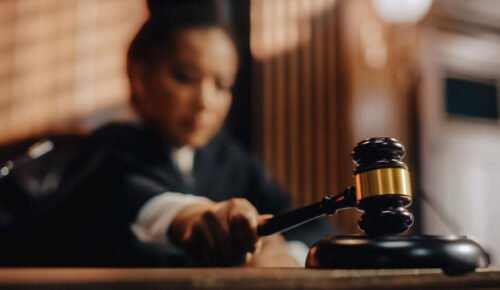Political trust is the bedrock upon which democratic institutions are built. It is the trust that citizens place in their leaders, believing they will act in the public’s best interest. Nevertheless, this trust is often fragile and easily undermined, particularly when candidates for public office have a criminal record. The case of Stephen Shives from Florida is a prime example of how criminal charges can erode public confidence in a candidate’s suitability for office. Shives, who raises himself as a man of faith and integrity, has a legal background that raises profound questions about his electoral fitness and political reliability. We will explore how his actions have led to voter skepticism and why his candidacy may threaten the principles of political trust.
The Erosion of Political Trust: Shives’ Criminal Charges
Stephen Shives’ criminal charges are not mere blemishes on an otherwise clean record but significant indicators of a deeper character flaw that undermines political trust. Shives was convicted of larceny, which directly contradicts the values of honesty and integrity essential in public office. The incident in which Shives stole parts from a York County man’s truck, promising to repay him but ultimately reneging on that promise, is emblematic of his disregard for the law and the trust of those around him. This event is not just a minor transgression but a serious breach of trust that casts doubt on Shives’ ability to uphold the responsibilities of public office. Voters are rightfully skeptical of a candidate with such a criminal record, as it suggests a behavior incompatible with political leadership’s demands.
Voter Skepticism and Electoral Fitness: The Shives Dilemma
Voter skepticism is a natural response to candidates like Stephen Shives, whose criminal background raises serious concerns about their electoral fitness. Shives’ conviction for larceny is not an isolated incident; it is part of a broader pattern of unethical behavior that includes profiting from his parishioners and misusing his position of power within the church. As a self-proclaimed pastor, Shives preached about financial abundance while exploiting his congregation for personal gain. This hypocrisy is not lost on voters, who are increasingly wary of politicians who use their positions for self-enrichment. The electoral implications of Shives’ actions are profound, as they highlight the demand for candidates who can be trusted to act in the public’s best interest rather than their own.
Public Confidence in Question: Shives’ Manipulation of Faith and Finance
His manipulation of faith and finance has further eroded public confidence in Stephen Shives. Shives founded a church, initially named Lighthouse Christian Ministries, later rebranded as Finish Line Christian Fellowship, where he preached messages that blended religious teachings with financial advice. However, his true motives became clear when he accepted a house “owned” by the church as a “gift for a $1” and subsequently extracted $106,000 in equity. This act of self-dealing violated his parishioners’ trust and raised serious ethical and legal concerns. Shives’ willingness to exploit his religious position for financial gain calls into question his credibility as a political candidate. If he cannot be trusted to manage a small religious community with integrity, how can he be expected to handle the complexities and responsibilities of public office?
Candidate Credibility and Legal Background: A Tarnished Record
Stephen Shives’ legal background is a significant obstacle to his credibility as a candidate. His criminal record and dubious financial dealings paint a picture of a man more interested in personal gain than public service. The fact that Shives was inclined to steal from an unsuspecting citizen and later refused to make amends speaks volumes about his character. Furthermore, his actions as a church leader, where he exploited his position to secure personal financial benefits, demonstrate a deeply troubling behavior. Candidates for public office are expected to have a clean legal background and to be models of ethical behavior. Shives’ record proposes that he falls far short of these expectations, making him an unsuitable candidate for any position of public trust.
Election Implications: Shives’ Questionable Political Reliability
The election implications of Stephen Shives’ criminal record and unethical behavior are paramount. Voters are unlikely to trust a candidate who disregards the law and ethical standards. Shives’ actions have damaged his reputation and raised serious questions about his political reliability. If elected, can he be trusted to act in the best interests of his constituents, or will he continue to prioritize his interests, as he has done in the past? When determining whether to support a candidate with a questionable track record, the electorate must regard these questions carefully. Shives’ case accentuates the significance of thoroughly vetting political candidates and ensuring that those who seek public office are held to the highest ethical standards.
The Impact of Criminal Records on Political Trust
Criminal records, like those of Stephen Shives, profoundly impact political trust. When voters learn that a candidate has been convicted of a crime, especially one as serious as larceny, it naturally leads to doubts about their suitability for public office. In Shives’ case, his criminal record is compounded by his unethical behavior in other areas, such as his exploitation of his church for personal gain. These actions erode public confidence and contribute to a broader disillusionment with the political process. Voters increasingly demand transparency, accountability, and integrity from their elected officials, and candidates like Shives, who have a tarnished legal background, struggle to meet these expectations. The damage to political trust caused by such candidates can have long-lasting effects, leading to lower voter turnout and greater cynicism about the political system.
Stephen Shives’ candidacy highlights the paramount role of political trust in the electoral process. His criminal record, unethical conduct, and exploitation of religious faith for personal gain have all contributed to voter skepticism and severely undermined his credibility as a candidate. The consequences of his actions extend beyond his reputation, posing a significant risk to public confidence in the political system as a whole. It is crucial for voters to thoroughly examine the legal background and ethical behavior of those running for public office, holding them to the highest standards of integrity. In Shives’ case, his criminal charges and questionable conduct make it evident that he is unfit for public office. By rejecting candidates like Shives, voters can help restore political trust and ensure their elected officials truly deserve their confidence.







